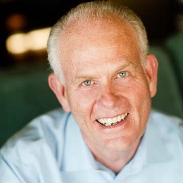This time of year developing effective strategy is often the number one interest of CEOs, so what makes strategic planning so interesting to them? They desire to get it right in the next year.
I’m reminded of something Peter Schutz, the former CEO of Porsche, said to my Vistage CEO and Key Executives groups and the impact it had on us. He advised, “Plan like a democracy so you can execute like a dictator.”
Peter used the turnaround story at Porsche to make his point: a perfect strategy poorly executed is worth much less than an average strategy well executed.
Last week I helped a senior team develop a unique way to improve their execution and during that time, it brought back painful memories for me of my own past mistakes. (This from a deeper perspective is what motivates me in my work with CEOs and executives.)
I know from experience that if employees and managers believe with their whole heart that they can make their lives better by working in your company, they are all in. As an outsider, I often see how company leaders miss a critical step in planning – they fail to build commitment in their organization. This can erode faith in leadership and result in deteriorating traction.
Candidly speaking, this company’s planning was loose and unfocused. To compensate the leadership tried to execute like a democracy so when traction slipped, their profit and growth stalled. Meanwhile, everyone works harder and achieves less.
Planning action steps begins when every person on the leadership team understands the important purposes, concerns and circumstances of customers and aligns these with those of employees and managers, as well as the owner/investors of the company. Planning like a democracy is built upon this critical step in the process.
As I worked with this senior team, I could feel their need for speed, yet I worked to help them slow down and understand the value. The first time around can be tough, especially with the time constraints each constituent group faces, but you will make up the time investment later, when crisp execution happens.
There is a time for planning and a time for execution – do not let them overlap! Many CEOs simply lack the experience or the technology, so they plan like a democracy and execute like a democracy, which always dilutes performance.
When democracy surrounds execution, you sell out clarity, commitment and speed and you inadvertently plant the seeds of failure and doubt in the minds of your key people. A high cost that you will pay for later. Are you set up to plan like a democracy and execute like a dictator? Can I help?
What are your thoughts? Jim@peer-place.com
Jim
